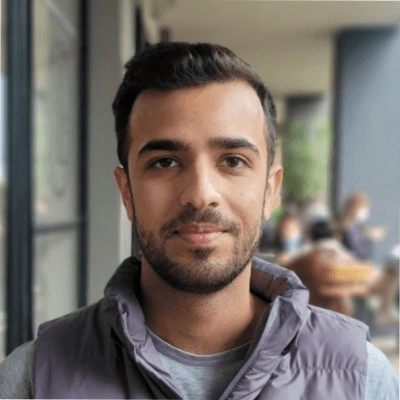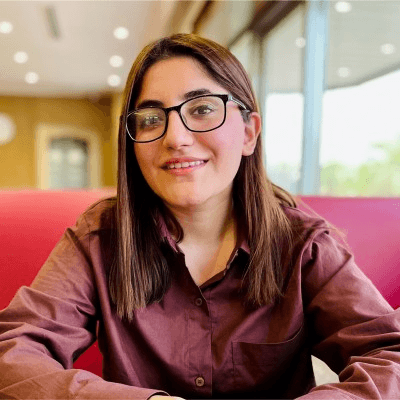Empowering ADHD and TBI Patients with LightBridge & OpenAI
Summary
LightBridge, founded by Joy Lewis, supports survivors of Traumatic Brain Injury (TBI), their families, and caregivers. Recently, Walturn integrated OpenAI's completion model into the app to auto-generate personalized routines for users, greatly benefiting those with TBI and ADHD by helping them create and maintain healthy habits easily.
Key insights:
Mission: LightBridge aims to support TBI survivors, their families, and those with autism and other mental challenges.
Partnership: Joy Lewis partnered with Walturn to develop LightBridge using Flutter, creating a platform for individuals with TBI, ADHD, and other mental health challenges.
OpenAI Integration: Walturn integrated OpenAI’s completion model to auto-generate personalized routines for users.
Benefits: Helps individuals with TBI and ADHD create and maintain healthy routines, reducing stress and improving quality of life.
Features: Users can manually add steps or use the AI to generate them, and the app includes a community support feature for mental health issues.
Impact: The integration marks a significant advancement in managing TBI and ADHD, enhancing daily life for users.
Introduction
LightBridge is an application with a mission of supporting survivors of Traumatic Brain Injury (TBI), their families, and caregivers. Additionally, they want to become a go-to resource for people with autism and other mental challenges by making LightBridge more accessible. Joy Lewis founded LightBridge Inc. in 2016, years after her son, Jordan, suffered a life-altering TBI from a car accident.
The business believes that true caring is guiding others to recognize their untapped potential, grow in confidence, and capitalize on their unique talents, skills, and knowledge to make contributions to the world, even while enduring unimaginable health challenges.
Joy's vision became a reality when she partnered with Walturn to develop the app. By leveraging our expertise in Flutter, systematic engineering approach, and a team of talented engineers, Lightbridge has become the preferred platform for individuals with TBI, ADHD, and other mental health challenges.
LightBridge and OpenAI
Just recently, Walturn has integrated OpenAI's completion model into the Lightbridge app to auto-generate personalized routines for users. This exciting new feature has the potential to greatly benefit those living with these conditions, providing them with a tool that can help them create and maintain healthy routines and habits.
TBI and ADHD are complex conditions that can greatly impact an individual's daily life. People with TBI may experience cognitive difficulties, memory problems, and challenges with attention and focus. Similarly, people with ADHD may struggle with hyperactivity, impulsivity, and difficulty sustaining attention.
These problems can make it challenging for individuals to develop and maintain healthy habits and routines that are critical for their well-being. Moreover, creating routines manually is a tedious task which requires time, patience and attention to detail.
This is exactly where most individuals with TBI and ADHD tend to lag behind. Therefore, we at Walturn recognized the need for a solution that could help individuals with TBI and ADHD to create and maintain healthy routines easily.
We turned to OpenAI, a leading provider of artificial intelligence (AI) technology, to help Lightbridge integrate an AI-powered completion model into their app. The OpenAI completion model is a state-of-the-art language model that can generate natural language text that is highly accurate and human-like.
By integrating this technology into Lightbridge, Walturn has created a powerful tool that can generate personalized routines for users based on their unique needs and preferences. The app prompts users to enter the name of the routine that they want to create.
The completion model then uses this information to generate steps for the routine. The app also allows users to modify and customize their routines for example by adding various kinds of media to each step. This provides the user with the flexibility to make changes as needed.
Workflow
The example below illustrates how the feature works in the application.
The user clicks on the + symbol on the bottom right in the Routines tab to create a new routine.
The user is prompted to enter a name for the routine.
The user selects a relevant emoji or icon for their routine.
The user can then add steps manually using the “Add Step” button or click on “Auto Generate Steps” to use the Open AI completion model to generate steps automatically.
Once the user clicks on “Auto Generate Steps”, the steps for the routine are generated. The user can now choose to save the routine.
Empowering ADHD & TBI Patients
This new feature has the potential to be incredibly beneficial for people living with TBI and ADHD. It can help them create and maintain healthy routines that support their overall well-being, reducing stress and improving their quality of life.
Additionally, the auto-generated routines can help users stay on track and avoid the frustration that can come from trying to create and stick to a routine on their own.
Not only this, the app also has a community support feature for those with mental health issues which allows people to find and connect with those who face the same problems in their day to day lives.
In conclusion, Walturn's integration of OpenAI's completion model into the Lightbridge app is a major step forward in the management of TBI and ADHD.















































